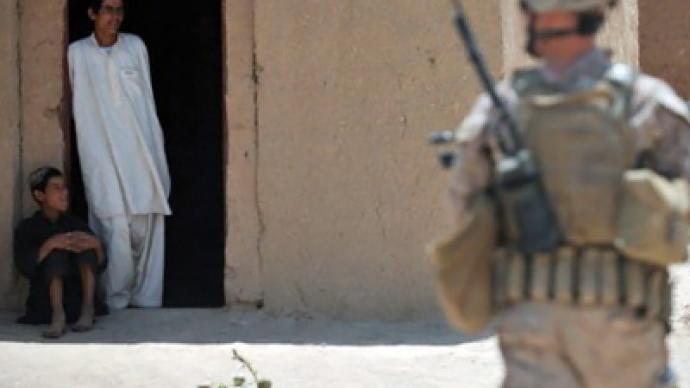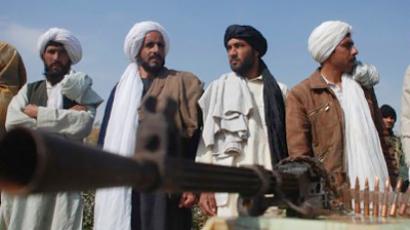Dealing with Taliban unpleasant but necessary – Clinton

After President Barack Obama announced a timetable for pulling US troops out of Afghanistan, Secretary of State Hillary Clinton went to the Senate to make the case for why Obama's strategy is the right approach to winning the war.
Addressing the Committee on Foreign Relations on Thursday, the secretary of state had to justify the spending of billions of US taxpayer dollars on a war that seems to have no end. Facing a great deal of skepticism toward the war, Clinton tried to focus on the progress accomplished in the region. She mentioned the killing of some important Al Qaeda leaders, and also said that the US has broken the Taliban’s momentum.“We are shifting our efforts from short-term stabilization projects, largely as part of the military strategy, to longer-term sustainable development that focuses on spurring growth and integrating Afghanistan into South Central Asia’s economy,” said Clinton.She also explained to the Senate that in order to bring stability and security to the country, US officials have established some “very preliminary” contacts with Taliban members, as it is impossible to reach peace in Afghanistan without reconciling the scattered pieces of its society.“This is not a pleasant business, but a necessary one, because history tells us that a combination of military pressure, economic opportunity, and an inclusive political and diplomatic process is the best way to end insurgencies,” said Clinton. However, despite Clinton’s assurances about the progress achieved, there are reports that the insurgents are not really going away in Afghanistan, says RT’s Gayane Chichakyan. The systematic killing of civilians by NATO strikes has also added fuel to the fire. Experts say many of those fighting against the US are not Al Qaeda members, but regular Afghans who they see US troops as invaders.After a recent strike that killed a significant number of civilians, including children, even US-backed President Hamid Karzai had to make a harsh statement, warning that if the US continues killing civilians, the entire Afghan population will treat them as occupiers. In addition, Chichakyan reports, many Afghans worry that fewer troops will not necessarily mean fewer bombs dropping on their homes. Despite talk about upcoming troop withdrawals, the US has reportedly stepped up airstrikes, including drone strikes, in the country. The upcoming pullout is supposed to bring back home 30,000 American soldiers by the end of 2012. Nearly 70,000 US troops are set to remain in Afghanistan, with a complete pullout promised to take place by 2014.
The US will not give up on Pakistan
Clinton also commented on US relations with Pakistan, saying that US diplomats have sent Pakistani officials a clear message that the US will not tolerate Pakistan providing a “safe haven” for terrorists that threaten US security. “We are looking to Pakistan to take concrete actions on the goals we share: defeating violent extremism, which has also taken so many innocent Pakistani lives; ending the conflict in Afghanistan; and securing a stable, democratic, prosperous future,” added Clinton.At present, the US does not have troops on the ground in Pakistan, but uses drones to kill suspected terrorists. Civilians were sometimes victims of such attacks, a fact which has made Pakistanis furious at their government for allowing such US actions. However, Clinton added that the US will not stop its cooperation with Pakistan, because it cannot “walk away from this relationship and ignore the consequences.” From Clinton’s words it is becoming clear that the US is going to continue its drone operations in Pakistan against terrorists. However, some experts say that by killing innocent people, the US may only generate more extremism in the region.
Former Reagan administration official Lawrence Korb says the US should not worry about the militant group's return. “The military is always against any type of withdrawal, and they want to slow down as much as they can,” said Korb, now at the Washington-based Center for American Progress think tank. “Even our military commanders say there is no military solution – you have to negotiate with the Taliban…. And it is a good time to talk to them…I don’t think anybody in our country would like the Taliban to come back, but if they do – that does not impact our national security interest.”














